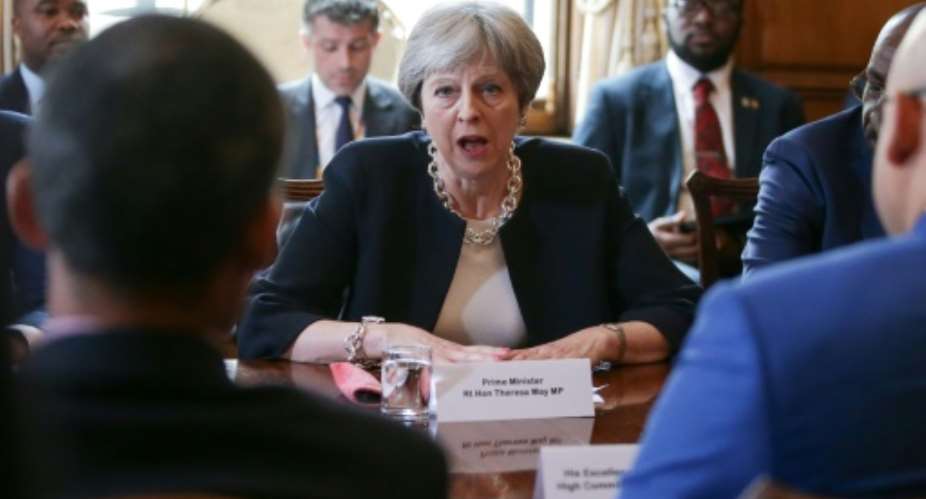British Prime Minister Theresa May on Tuesday told former colonies anti-gay laws once imposed by her country "were wrong then, and they are wrong now".
The premier raised discriminatory legislation affecting same-sex couples, women and girls, in an address to Commonwealth leaders in London.
"I am all too aware that these laws were often put in place by my own country. They were wrong then, and they are wrong now," she said in a speech to the biennial Commonwealth Heads of Government Meeting (CHOGM).
"As the UK's prime minister, I deeply regret both the fact that such laws were introduced, and the legacy of discrimination, violence and even death that persists today," she added.
Same-sex marriage is legal in Britain, but many countries have held onto legislation imposed by their former colonial rulers.
Globally 72 countries criminalise same-sex relationships, according to a 2017 report by the International Lesbian, Gay, Bisexual, Trans and Intersex Association.
The organisation pinpoints British colonial-era legislation still being used in Commonwealth members including Uganda, Malaysia and Singapore.
Britain's premier said her government would back plans to scrap such laws: "The UK stands ready to support any Commonwealth member wanting to reform outdated legislation that makes such discrimination possible."
May's speech was met with applause, but her criticism of other countries' laws could cause a further rupture to the summit which has already been hit with a scandal over emigres to Britain.
The prime minister apologised to Caribbean leaders after her government threatened to deport some of the hundreds of thousands of people who moved to Britain from the region in the 1950s and 1960s.
Those who did not get their papers in order are now being treated as illegal as part of the government's crackdown.
But following a backlash May has written to each of the Caribbean countries affected outlining how Britain intends to rectify the situation.
The row has cast a shadow over the summit, which the UK government had hoped would be an opportunity to promote trade with Commonwealth countries, ahead of Britain leaving the European Union next year.





 Critics fear Togo reforms leave little room for change in election
Critics fear Togo reforms leave little room for change in election
 Flooding: Obey weather warnings – NADMO to general public
Flooding: Obey weather warnings – NADMO to general public
 Fire in NDC over boycott of Ejisu by-election
Fire in NDC over boycott of Ejisu by-election
 NDC to outdoor Prof Jane Naana Opoku-Agyemang as running mate today
NDC to outdoor Prof Jane Naana Opoku-Agyemang as running mate today
 Ejisu: CPP seeks injunction to stop April 30 by-election
Ejisu: CPP seeks injunction to stop April 30 by-election
 Dismiss ECG, GWCL, GACL bosses over losses – United Voices for Change tells gov’...
Dismiss ECG, GWCL, GACL bosses over losses – United Voices for Change tells gov’...
 Submit 2023 audited financial statements by May – Akufo-Addo order SOEs
Submit 2023 audited financial statements by May – Akufo-Addo order SOEs
 Current power outages purely due to mismanagement – Minority
Current power outages purely due to mismanagement – Minority
 ECG hoists red flag to fight Ashanti Regional Minister over arrest of General Ma...
ECG hoists red flag to fight Ashanti Regional Minister over arrest of General Ma...
 Mahama’s 24hr economy will help stabilise the cedi; it’s the best sellable polic...
Mahama’s 24hr economy will help stabilise the cedi; it’s the best sellable polic...
